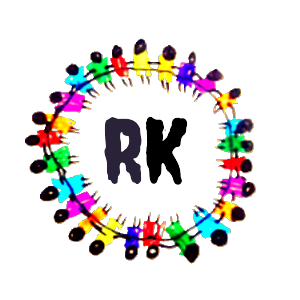Learning Java effectively involves a structured approach that builds from basic to advanced concepts. Here’s a comprehensive outline to guide your learning journey:
1. Introduction to Java
- Overview of Java: Learn about Java’s history, its uses, and why it’s popular.
- Setting Up Java: Install the Java Development Kit (JDK) and set up your development environment (IDEs like IntelliJ IDEA, Eclipse, or NetBeans).
2. Basic Syntax and Operations
- Hello, World!: Write your first Java program.
- Basic Syntax: Understand Java’s syntax, structure, and conventions.
- Data Types: Learn about primitive data types (int, float, char, boolean) and reference data types (objects, arrays).
- Variables: How to declare and use variables.
3. Control Structures
- Conditional Statements: if, else if, else, and switch-case.
- Loops: for, while, and do-while loops.
- Control Flow Statements: break, continue, and return.
4. Methods and Classes
- Defining Methods: Learn to define and call methods, pass arguments, and return values.
- Method Overloading: Understand method overloading and its uses.
- Classes and Objects: Learn to define classes, create objects, and understand the concept of constructors.
- Fields and Methods: Understand instance variables, class variables, instance methods, and class methods.
5. Object-Oriented Programming (OOP)
- Encapsulation: Learn about access modifiers (private, public, protected) and getter/setter methods.
- Inheritance: Understand inheritance, the super keyword, and method overriding.
- Polymorphism: Learn about method overloading and overriding, dynamic method dispatch.
- Abstraction: Understand abstract classes and interfaces.
- Composition: Learn how to use composition to design flexible systems.
6. Advanced Data Structures
- Arrays: Learn about single-dimensional and multi-dimensional arrays.
- ArrayList: Understand how to use the ArrayList class.
- Linked Lists: Introduction to LinkedList class and its uses.
- Collections Framework: Learn about the Collections framework, including Lists, Sets, Maps, and their implementations (ArrayList, HashSet, HashMap).
7. String Manipulation
- String Class: Basic string operations, immutability, and common methods (length, charAt, substring).
- StringBuilder and StringBuffer: Efficient string manipulation with StringBuilder and StringBuffer.
- Regular Expressions: Using regex for pattern matching and text processing.
8. Exception Handling
- Basic Concepts: Understand exceptions, the try-catch block, and finally clause.
- Types of Exceptions: Checked vs unchecked exceptions.
- Custom Exceptions: Create and use custom exceptions.
9. Input and Output (I/O)
- Streams: Introduction to InputStream and OutputStream.
- File I/O: Reading from and writing to files using FileInputStream, FileOutputStream, BufferedReader, and BufferedWriter.
- Serialization: Learn about object serialization and deserialization.
10. Concurrent Programming
- Threads: Creating and managing threads using the Thread class and Runnable interface.
- Concurrency: Learn about synchronization, locks, and concurrent collections.
- Executors: Using the Executors framework for managing thread pools.
11. GUI Development
- Introduction to GUI: Overview of Java GUI libraries like Swing and JavaFX.
- Building a GUI: Create simple GUI applications using Swing or JavaFX.
- Event Handling: Understand event-driven programming and event handling in GUI applications.
12. Working with Databases
- JDBC: Introduction to Java Database Connectivity (JDBC).
- CRUD Operations: Perform Create, Read, Update, and Delete operations.
- Connection Pooling: Understand connection pooling and how to use it.
13. Networking
- Basic Networking Concepts: Overview of networking in Java.
- Sockets: Working with sockets for TCP/IP communication.
- HTTP Programming: Introduction to HTTP programming using HttpURLConnection and libraries like Apache HttpClient.
14. Advanced Topics
- Generics: Learn about generics and how to use them to write type-safe code.
- Annotations: Understand annotations and their uses.
- Lambda Expressions: Introduction to lambda expressions and functional interfaces.
- Streams API: Learn about the Streams API for functional-style operations on collections.
15. Best Practices
- Code Readability: Follow conventions and best practices for writing clean, readable code.
- Version Control: Use Git for version control and GitHub for collaboration.
- Testing: Learn about unit testing with JUnit and TestNG.
- Documentation: Use Javadoc to document your code.
16. Project-Based Learning
- Build Projects: Start with small projects like a calculator, to-do list, or basic game.
- Incremental Complexity: Move on to more complex projects like a personal blog, chat application, or e-commerce platform.
17. Continuous Learning
- Community Engagement: Join Java communities on Stack Overflow, Reddit, or Discord.
- Stay Updated: Follow Java-related blogs, podcasts, and news.
- Advanced Resources: Read advanced books like “Effective Java” by Joshua Bloch and “Java Concurrency in Practice” by Brian Goetz.
By following this outline, you’ll build a solid foundation in Java and progressively advance your skills through practical application and continuous learning.

Leave a Reply